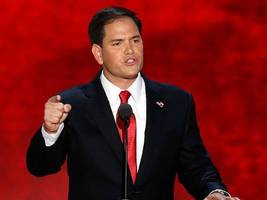![What Is the Real State of the Union?]()
On Tuesday, Jan. 28, President Barack Obama will address Congress and the nation in his annual State of the Union address. Confidence in Obama's leadership has faded to such a degree that people are losing interest in anything he says or does. Veteran political observers--even former presidential speechwriters!--are complaining about having to watch a speech that in recent years has become boring, repetitive, and cynically ideological.
As he has done in previous years, President Obama plans to use his State of the Union to launch a political campaign. This time, his theme will be inequality--the same tired nonsense Americans have been suffering since the Occupy Wall Street movement, and long before. Instead of an honest assessment of the country's present situation, the president will once again offer a Dickensian vision of a society torn between haves and have-nots.
Inequality has become worse on President Obama's watch, for the simple reason that his policies--especially Obamacare--have slowed economic growth and job creation, while the Federal Reserve's $85-billion-per-month monetary stimulus has largely flowed into Wall Street, enriching those who had money already. Those around Washington, DC and with connections to government contracts have done well. Few others have done as well.
If the president were to address the real State of the Union--without the focus-group-tested phrases and rhetorical straw men--then he could offer a sobering yet upbeat description of a country that is still in trouble but is better placed to succeed than it has been in many years. With a clear view of the challenges, and the right policy changes to address them, President Obama could deliver a State of the Union worth remembering.
*The Economy*
The country's unemployment rate has fallen, and the stock market hit record highs last year. Yet the number of people dropping out of the workforce entirely is a sign that we have not really recovered from the financial crisis of 2007-8. We are at risk of becoming a European-style economy, with a large welfare state and persistent high unemployment. A generation of youth stands at risk of losing their chance to start on the economic ladder.
Yet there is one bright spark: energy. The discovery and development of shale oil deposits, and the growing use of tracking technology to produce natural gas, are lowering energy prices and creating thousands of new jobs. We have just surpassed Saudi Arabia as the world's leading oil producer, and we are lowering our own carbon emissions in the process by burning cleaner fuels. This is an achievement to celebrate--and to build upon.
The irony is that our energy success came in spite of government, not because of it. The Obama presidency has done all it can to slow fossil fuel development on federal lands and offshore, and has stalled in approving the Keystone XL pipeline. It has, instead, shoveled federal cash to wasteful "green energy" investments that often enjoyed the patronage of the political elite but provided little benefit to taxpayers or the environment.
The answer is to expand the growth of the energy industry throughout the nation by lifting restrictions on oil and gas development, especially on federal lands and offshore, and also approving the Keystone XL pipeline to bring Canada's oil south. Government has a role to play, ensuring that there are no repeats of disasters like the recent oil spill in the Gulf of Mexico. Yet government can no longer stand in the way of such vast prosperity.
*Obamacare*
The rollout of Obamacare has confirmed what many of the policy's critics said from the start: that regardless of its good intentions, there was no way the federal government could administer a health insurance system for a nation of over 300 million people. Instead of focusing narrowly on helping the uninsured, the government tried to change everyone's insurance, with the result that many more people are actually losing their insurance today.
The federal Obamacare exchange, and many of the state exchanges, are a useful lesson in the hubris and futility of big government. President Obama's approach has been to resist legislative changes, for fear that they would open the door to repeal. Instead, he has made adjustments by fiat. That has undermined confidence in the rule of law. And his broken promise that people could keep the insurance they liked has hurt their trust.
The answer is to scrap Obamacare and start over with a new system--one that keeps a few of the benefits that Obamacare has introduced, such as coverage for pre-existing conditions, but which otherwise reverses the great error that was pushed through Congress, against wide popular disapproval, in 2010. A new system should focus on moving away from a third-party-payer system and give individuals more control over their health spending.
That means expanding the use of Health Savings Accounts, not limiting them. It means allowing people to buy insurance across state lines. And it means shifting to a system of premium support for Medicare, which would allow people to choose private insurance. The uninsured could be protected through a system of high-risk pools and cross-subsidization. And the tort system should be reformed to reduce the cost and risk of medial lawsuits.
*Deficits and Debt*
The national debt continues to climb because the federal government persists with a pattern of deficit spending that is slowly undermining our economic health, our global leadership, and our future. The reason we are forced to face a confrontation over the debt ceiling every few months is not because of the Tea Party but because the country's political leaders, as a whole, fail every time to deal with the spending that is the core of the problem.
There is good news and bad news. The good news is that we have actually cut government spending for the first time in consecutive years since the end of the Korean War, thanks to the "sequester"--a law that nobody wanted. There is more: the House and Senate are working together to pass new budgets. But there is bad news: the price of that cooperation is that we have partially undone the "sequester" and are spending again.
The problem with the sequester was not the amount of cuts but their composition. We should never have made defense spending equivalent to other discretionary spending. Defense is the first priority of government, and we face rising challenges around the world, even as we wind down ongoing wars. We have to focus on streamlining our spending elsewhere, and getting rid of programs--even whole departments--that provide little of real value.
Ultimately, the only real way to solve our deficits and debts is to address our entitlement programs. We need to raise the retirement age for Social Security and slowly move the system towards a real savings program, rather than a tax on today's workers for today's retirees. We need to make the Medicare changes described earlier and move the model towards individual insurance rather than one-size-fits-all care whose cost is unsustainable.
*Freedom at Home*
The past year saw a proliferation of scandals that, taken together, undermined faith in our government. The use of the IRS to persecute particular groups remains an outrage. The abuse of prosecutorial powers to investigate the media was a blow to press freedom. The surveillance programs of the National Security Administration did little to protect us from attack and raised doubts about our government's commitment to the Constitution.
In addition, the continued, excessive use of executive orders, executive powers and executive privilege to do what Congress would not otherwise permit or condone has undermined the basic founding compact of the nation. When the president threatens the democratically elected legislature, saying "I've got a pen," he does little to enhance his own stature but much to undermine faith in his leadership and the rule of law itself.
Fear of accountability is the one thing that holds government in check. When that fear fades, the potential for great errors grows. That is why the Benghazi terror attack happened, and why our government lied to America about it. We need a select committee in Congress to investigate Benghazi once and for all, naming names and holding this administration accountable the way Congress could not, and the press would not, at the time.
We also need to scrap the new Treasury rules that would legalize the kind of abuses that the IRS carried out against the Tea Party and other conservative groups. It is also time to end the special protection enjoyed by the Department of Justice, whether in hiding the documents relating to Operation Fast and Furious, or encouraging it to sue states for adopting legitimate voter ID laws, educational reforms, and immigration enforcement tools.
*Global Freedom*
Our foreign policy is a mess. With the sole exception of the Israeli-Palestinian conflict, where our intervention can do little good, we are withdrawing from the world, leaving it a more unstable and less free place. We do a very poor job of advocating for our interests, much less our ideals. And we are abandoning our allies, allowing our enemies and rivals to reshape a new global order that will leave humanity less prosperous and secure.
We need a new approach that focuses squarely on strategic goals. In the Middle East, our goal must be simple: ending the threat of a nuclear Iran. We should pass the new bipartisan sanctions that will take effect if Iran tries to cheat on the deal, and we must insist that the ultimate goal of talks is a dismantlement of the regime's nuclear program. We should also support opposition efforts in that country to replace the Iranian regime itself.
In Asia, we must return to our traditional postwar goal of protecting free trade and the safeguarding the small states of the Western Pacific. Trade with China remains vital for both sides, but we cannot allow that trade to come along with militant Chinese expansionism. We will keep the sea lanes open in the Indian Ocean as well as the Pacific, and we will support democratic allies like India as a bulwark against instability in Central Asia.
In Europe, we should do more to strengthen the nations of Eastern Europe and counteract new pressures from Russia, which seeks to bring newly free countries back under its control. We should make clear to the Ukrainian government that we will not tolerate violent suppression of democratic protest, for example. And in Africa, we should work more closely with the most stable democratic countries to create launching pads for growth.
*Unity in Diversity*
Americans are more divided today than when President Obama took office, promising to bring us together. That is not only an economic reality, but a social and political one. It is also largely a result of his rhetoric and his policies. From the "99 percent" to the Travyon Martin controversy, he and his administration have seized almost every opportunity to divide the country so as to excite the Democrats' voter base before Election Day.
One result is that the various states have moved in dramatically different directions, on social and economic issues. Blue states have become bluer and red states redder. We are witnessing an experiment in governance, a test of whether higher taxes and powerful unions produce better outcomes than limited government. And we can see the results: states that choose reform are creating more jobs, growing faster, and balancing their books.
It is time to learn from states like Wisconsin, which turned a $3.6 billion deficit into a surplus of $1 billion--and began its recovery by lowering corporate taxes. And it is time to let states choose their own path on social issues, whether gay marriage, abortion, or drug enforcement. We can learn from what works in the states--or what does not--and apply those lessons on the federal level. That is a great strength of our national diversity.
America's great diversity also proves the enduring strength of our nation's founding principles, which every new generation of citizens--born and naturalized--has embraced. We weaken those principles when we imagine we must compromise the rule of law for the sake of tolerance or growth. In fact, equality before the law is the best kind of equality, the true arc towards which our path through history bends. We must restore that as our goal.
Reported by Breitbart 7 hours ago.
 On Tuesday, Jan. 28, President Barack Obama will address Congress and the nation in his annual State of the Union address. Confidence in Obama's leadership has faded to such a degree that people are losing interest in anything he says or does. Veteran political observers--even former presidential speechwriters!--are complaining about having to watch a speech that in recent years has become boring, repetitive, and cynically ideological.
On Tuesday, Jan. 28, President Barack Obama will address Congress and the nation in his annual State of the Union address. Confidence in Obama's leadership has faded to such a degree that people are losing interest in anything he says or does. Veteran political observers--even former presidential speechwriters!--are complaining about having to watch a speech that in recent years has become boring, repetitive, and cynically ideological. Ted Cruz: President Obama, Democrats Shut Down The Government Last Fall
Ted Cruz: President Obama, Democrats Shut Down The Government Last Fall California has long been the flagship for Obamacare. It was targeted last fall by President Barack Obama's own activist group, Organizing for Action, for precisely that reason: given the strength of their volunteer efforts, they hoped the state could be a symbol for the success of Obamacare as a whole.
California has long been the flagship for Obamacare. It was targeted last fall by President Barack Obama's own activist group, Organizing for Action, for precisely that reason: given the strength of their volunteer efforts, they hoped the state could be a symbol for the success of Obamacare as a whole.  Florida Senator Marco Rubio continued his assault on an Obamacare “bailout” quietly built into the health care law in new video address to constituents provided exclusively to Breitbart News.
Florida Senator Marco Rubio continued his assault on an Obamacare “bailout” quietly built into the health care law in new video address to constituents provided exclusively to Breitbart News.